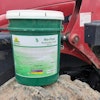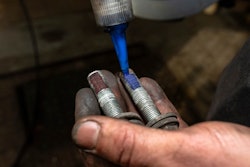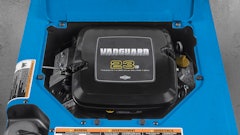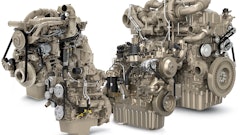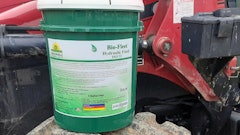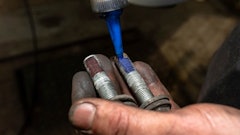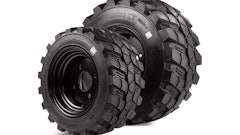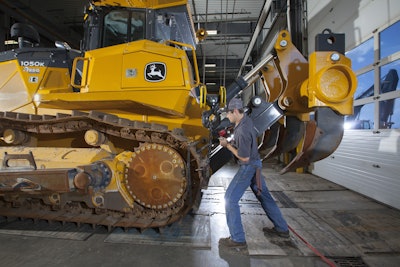
A necessary nuisance — that's what I thought as I sat in the waiting room to complete an annual checkup. Instead of putting it off, I made it official and took time off work to get it done. It’s one of those things where, with the hectic pace of life inside and outside of work, it just doesn’t feel pressing. But when you skip that check-up and start feeling off a few weeks later, you sure wish you’d treated it with more importance. Proactive and preventative actions can feel the same way for equipment owners and operators, especially when a project's budget and timeline are tight, but boy, can the benefits be huge.
At least 70% of construction workers said they felt more stressed at work than in previous years, according to a recent study from the University of Cambridge. Preventative measures like taking time to get a checkup or relaxing with a friend that you haven’t seen since Labor Day, may seem like a hassle rather than the hustle to propel you forward in the upcoming construction season. Our machines, like our bodies, deserve that annual inspection with expert advisors. These annual inspections can treat these complex machines’ normal wear and tear, so that they won’t suffer as much when high-production stress occurs. Industry experts share what happens during an annual inspection.
What Happens During an Inspection?
Equipment owners and operators know that inspections can catch issues before they happen.
“Regular maintenance is great for keeping machines up and running,” said Carson Laney, regional aftermarket manager at RDO Equipment Co. “But an annual inspection with a trusted service technician takes a closer look, beyond oil changes and filters to really understand the condition of your machine.”
A contractor can contact a trusted equipment expert or product specialist, who can perform a wear parts inspection for free. Just as a more in-depth check-up with a heart specialist will provide more info about steps to take to improve your blood pressure, an annual inspection by a field technician can uncover issues that cause extra stress on your machine. Although the time with a heart specialist or service technician may require an extra cost.
“For specialized machines like WIRTGEN GROUP an inspection after a contractor completes its busy season is crucial. Maintaining these machines during the off-season ensures production and uptime for the spring.” Laney said.
During an inspection, a trusted technician will complete the following tasks.
- Visual walkaround — Check for visible wear, damage or leaks.
- Fluid sampling — Collect and send oil, coolant and hydraulic fluid for lab analysis.
- Diagnostic scan — Retrieve and record any active or stored fault codes.
- Feature verification — Confirm installed options and machine configurations.
- Operational test — Run the machine to evaluate performance and responsiveness.
- Documentation — Record all findings in a detailed inspection report.
Besides identifying parts that need to be replaced, annual inspection records natural wear and tear on machines, Laney explains.
“When inspections are done by your dealer, they’re added to the machine’s service history,” he said. “That record becomes a valuable asset when it’s time to trade or sell. Buyers trust machines with documented care.”
“I’ve seen technicians crawl from top to bottom and mark any issue that can cause a mid-season breakdown,” Laney said. “When a contractor knows about these potential issues, they can schedule maintenance and get them fixed when they are not needed on the job site.”
Laney explains that certified technicians follow a detailed checklist covering everything from pumps and engines to machine control systems. They test cords and connectors, clean system components and run diagnostics to catch small issues before they become costly problems.
Annual inspections identify wear and tear, replace parts, and identify potential upgrades so fleet managers can plan smarter, budget confidently, and drive performance during upcoming projects. Laney warns that when issues go overlooked, it can lead to costly repairs or safety hazards.
Take Care Now, Be Prepared Later
Just like we schedule doctor appointments so we can stay healthy for our friends and family, our machines deserve a full checkup during the off-season. Annual inspections and scheduling preventative maintenance protect equipment investments and can lower repair costs, thereby decreasing the risk of a breakdown.
Annual inspections also ensure you’re not caught off guard by parts shortages. With the right parts inventory and sourcing network, any needed components are either in stock or quickly available, so your machine is back on the job fast.
Whether you’re running a mixed fleet or managing compact equipment, the benefits are clear: better uptime, longer machine life and higher resale value.
Before the next busy season arrives, schedule an annual inspection of your machine. (And don’t forget to make an appointment with your primary care provider as well.) Your team and machines will thank you.


